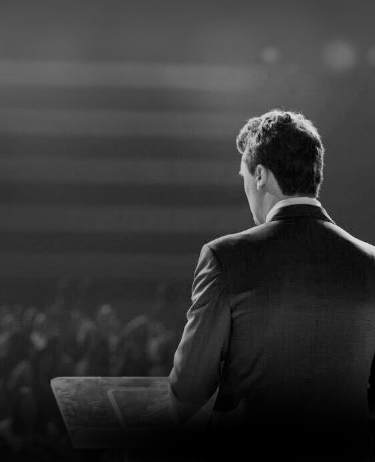Charlie Kirk is the Founder and President of Turning Point USA, a national student movement dedicated to empowering young people to promote the principles of free markets and limited government.
Charlie is also the host of “The Charlie Kirk Show” podcast, which regularly ranks among the top-10 news shows on Apple podcast news charts, and is the host of the nationally syndicated daily radio show on the Salem Radio Network live from 12 - 3 PM ET.

 Member
Member

